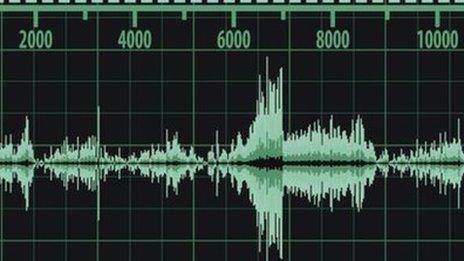Hammond: UK analysing safety implications of Canada attack
- Published
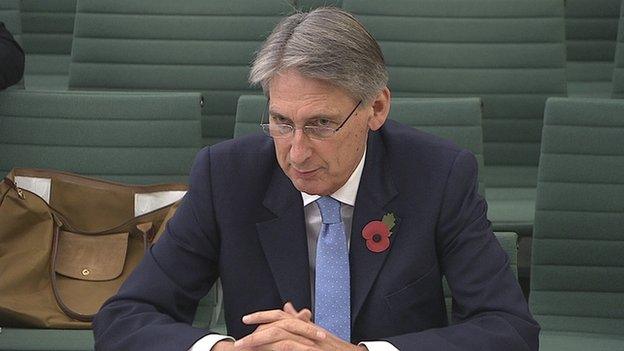
British agencies are examining the attack on the Canadian parliament for possible implications on the UK, Foreign Secretary Philip Hammond says.
A gunman killed a soldier at an Ottawa war memorial and rampaged through Canada's parliament before being shot.
Mr Hammond said the UK was in "close contact" with authorities in Canada.
He was appearing before Parliament's Intelligence and Security Committee, where he also defended the "bulk interception" of communications data.
The gunman, reportedly a Muslim convert named Michael Zehaf-Bibeau, was shot dead by the sergeant-at-arms.
The Queen - Canada's head of state - has said she is "shocked and saddened" by the shootings.
Mr Hammond told the committee: "I can say, for the purposes of public reassurance, that our agencies are in close contact with their Canadian counterparts and as you would expect are already analysing what happened in Canada and the implications for us."
Bulk interception
The Intelligence and Security Committee is carrying out an investigation into privacy and security, which was the subject of most of the questions posed to the foreign secretary.
He said no country in the world would be able to carry out "mass surveillance" of its citizens because of the resources required, and defended the "bulk interception" of people's communications data, saying that just a "tiny element" gathered was seen by a human.
He said getting a balance between security and privacy was "vital", and that the public mood "oscillates" between the two depending on the threat to public safety.
Given the threats faced at the moment, Mr Hammond said: "I think the mood of the public is that they want to be secure and that a certain level of intrusion is required."
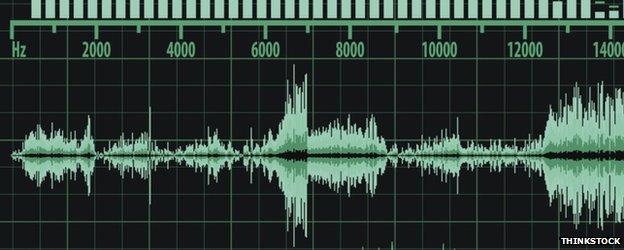
The security services need a warrant to be allowed to listen to the contents of a voice call
The "overwhelming majority" of data that is gathered is discarded or destroyed, he said.
"A tiny, tiny amount of bulk data will ever reach a human analyst."
Mr Hammond this was not the same as mass surveillance, saying the UK did not have the resources to do this, and that it would also be illegal.
He added: "It is simply impossible, even for the most intrusive state in the world for that state to mass analyse communications of individuals because of the sheer volume passing across the global communications system."
'Protection'
Earlier this year, Charles Farr, director general of the Office for Security and Counter-Terrorism, said that posts on sites like Facebook were classified as "external communications" because the firms were based abroad - which meant they could be intercepted without the need for additional legal clearance.
Mr Hammond said they would be classed as "external communications" - but that authorisation would still be required for the agencies to look at it.
"What people in the UK need to understand is that the communications of people in the UK will only be examined on the basis of a specific authorisation of a secretary of state," he said, adding: "They should be clear that they enjoy that protection as a result of being in the UK even when they are using an external server or communicating with someone outside of the UK."
The foreign secretary also said the policy of "neither confirm nor deny" in relation to questions of national security would remain, saying it was a "vital part of our armoury".
Civil liberties campaigners have said the choice between privacy and security is "misguided".
In its written submission, external to the committee, campaign group Liberty said: "It is neither necessary nor proportionate in a democratic society to collect, monitor or process innocent communications in order to find those that threaten our security."
The committee hearing came as tech industry representatives were invited to Downing Street to discuss ways to tackle militant group Islamic State's online activities.
Facebook, Google and BT were represented in the discussions with Cabinet Office Minister Jo Johnson, which focused on what a Number 10 source said was the jihadist group's "sophisticated" web operation.
- Published7 November 2013
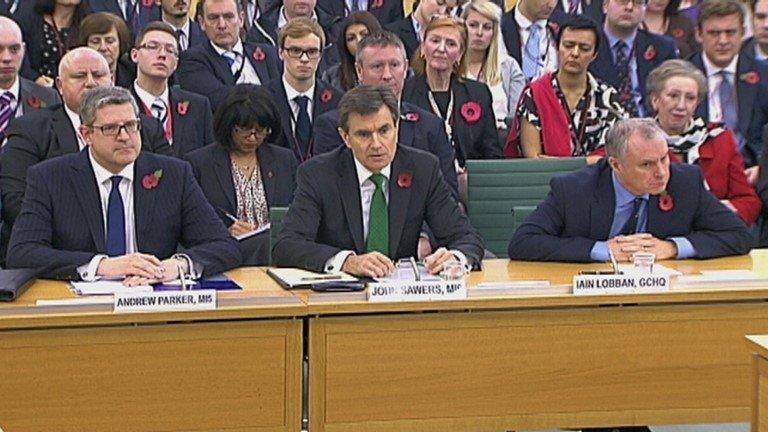
- Published7 November 2013
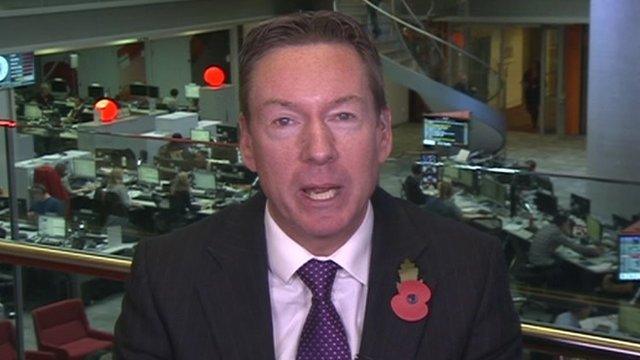
- Published17 June 2014
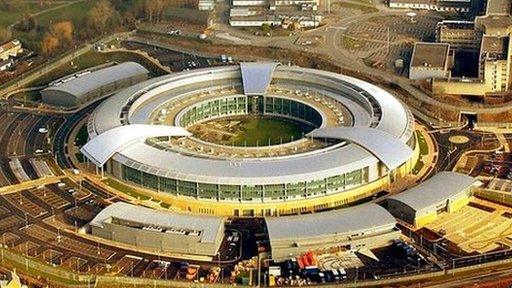
- Published10 July 2014
